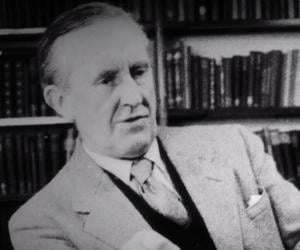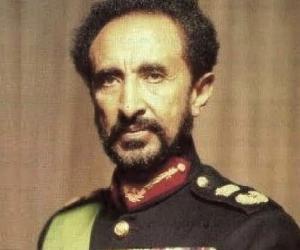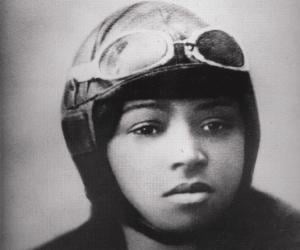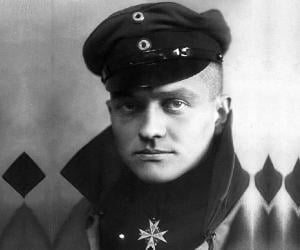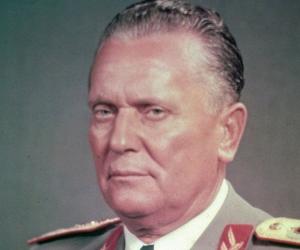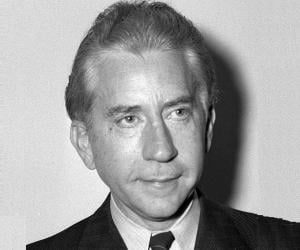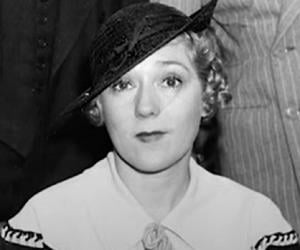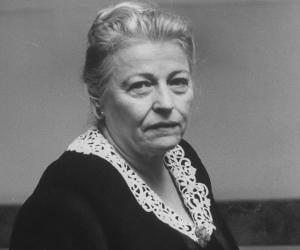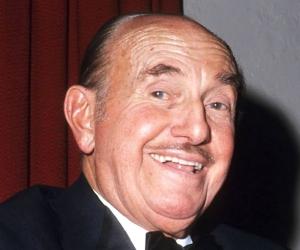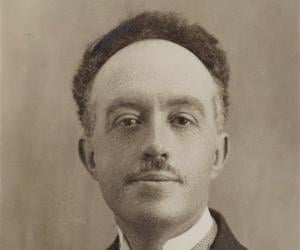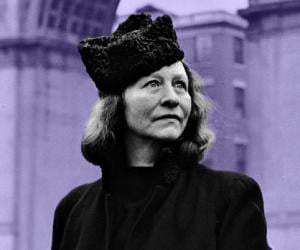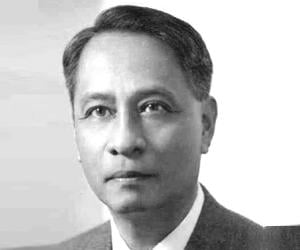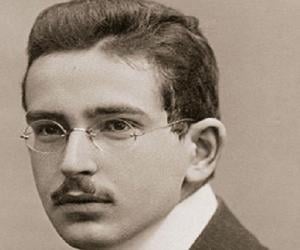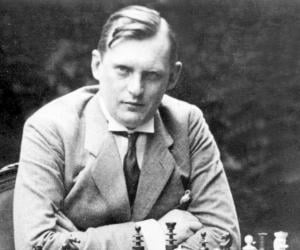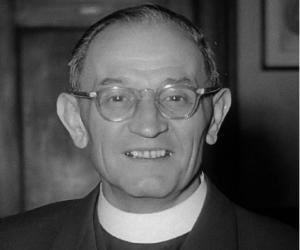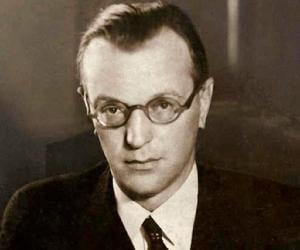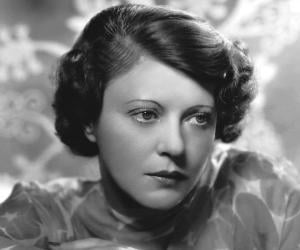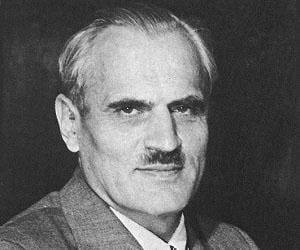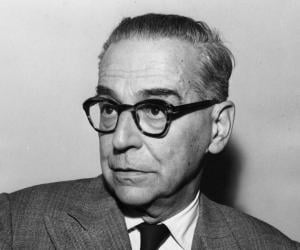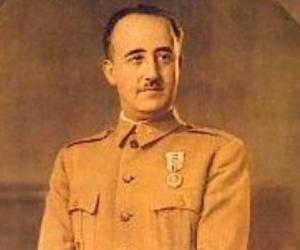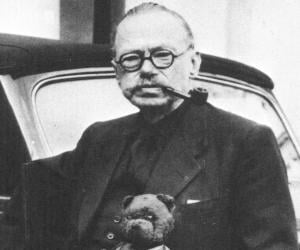Considered one of the greatest authors, JRR Tolkien is popularly called the father of the modern fantasy literature. He is best known for his high fantasy classic works The Hobbit and The Lord of the Rings, which is set in a conceived world called the Middle-Earth. Many years after his death, Tolkien continues to be one of the best-selling writers.
Haile Selassie, served his country, Ethiopia, as its regent from 1916 to 1930 and as its emperor from 1930 to 1974. He introduced the first Ethiopian constitution, abolished slavery, chaired the Organisation of African Unity, and helped Ethiopia enter the UN. He inspired the Rastafari movement, too.

Bessie Coleman was an American civil aviator and the first African-American woman to hold a pilot license. Nicknamed Queen Bess, Coleman became a high-profile pilot in the air shows organized in the United States. Bessie Coleman died at the age of 34 in a plane crash. Her efforts to promote aviation inspired the Native American communities.
As the patriarch of the Getty family, J. Paul Getty was an influential petrol-industrialist who founded the Getty Oil Company. In 1966, Paul made it to the Guinness Book of Records as the world's richest private citizen. An avid collector of antiquities and art, his collection is preserved at the J. Paul Getty Museum in California.
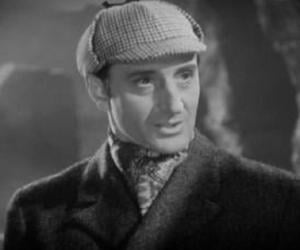
Basil Rathbone was an English actor best remembered for playing private detective Sherlock Holmes in 14 movies made between 1939 and 1946. Renowned for playing morally ambiguous characters, Rathbone won the prestigious Tony Award for his portrayal of Dr. Austin Sloper in The Heiress. Basil Rathbone has been honored with three stars on the Hollywood Walk of Fame.
Academy Award-winning Canadian-American actor Gladys Marie Smith, better known by her pseudonym, Mary Pickford, was also one of the co-founders of Pickford–Fairbanks Studios and United Artists. She and 35 others co-founded the Academy of Motion Picture Arts and Sciences. She was also known as "America's Sweetheart" of silent films.
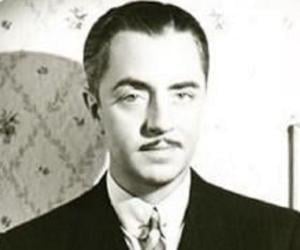
William Horatio Powell was an American actor who established himself as a prominent star at Metro-Goldwyn-Mayer. He is best remembered for appearing alongside Myrna Loy in The Thin Man film series. William Horatio Powell received three Academy Award nominations for Best Actor for his performances in The Thin Man, My Man Godfrey, and Life with Father.
Nobel Prize- and Pulitzer Prize-winning American author Pearl Buck was raised in China by her missionary parents. She grew up to teach English literature in Chinese universities and later penned books such as East Wind, West Wind and The Good Earth, which were based on her experiences in China.
One of 12 children of Polish immigrants, Jack L Warner, along with three of his brothers, formed the iconic production house Warner Bros. Apart from producing the first talkie, The Jazz Singer, and iconic films such as Casablanca, they also launched the careers of the who’s who of Hollywood.
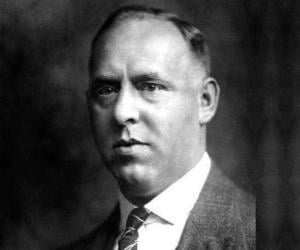
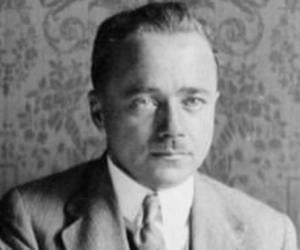
Engelbert Dollfuss was an Austrian politician best remembered for his service as Chancellor of Austria from 1932 to 1934. In 1933, Dollfuss assumed dictatorial powers after dissolving the parliament. He then went on to ban the Austrian Nazi Party and strengthened his own political organization, The Fatherland Front. Engelbert Dollfuss was assassinated by Nazi agents in 1934.

Born to jeweler and watchmaker Casper ten Boom, Corrie ten Boom followed in her father’s footsteps and became the first female licensed watchmaker in the Netherlands. She and her family hid scores of Jewish refugees during the Holocaust. Corrie later penned The Hiding Place, based on her experiences.
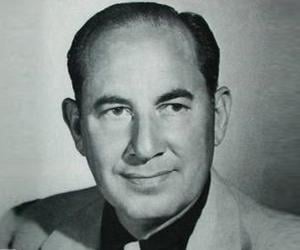
Louis de Broglie was a French aristocrat and physicist who made important contributions to quantum theory. His de Broglie hypothesis, which suggests that all matter has wave properties, is one of the most important features in the theory of quantum mechanics. In 1929, de Broglie was honored with the Nobel Prize for Physics for his work.
Margaret Rutherford was an English actress best known for playing the Duchess of Brighton in the 1963 drama film, The V.I.P.s, for which she won a Golden Globe Award and an Academy Award. In 1961, she was made an Officer of the OBE. In 1967, she was elevated to become a DBE.
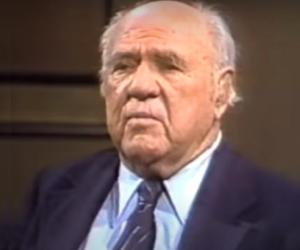
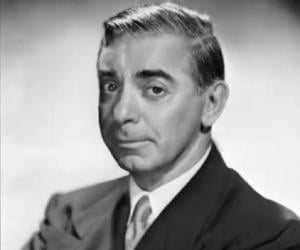
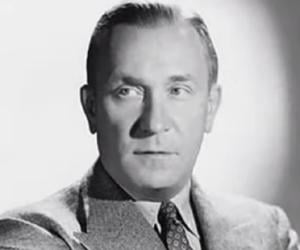
Starting his career with vaudeville and then moving on to Broadway, William Demarest later soared to fame with his role of retired sea captain Uncle Charley in the sitcom My Three Sons. His role in the biopic The Jolson Story got him nominated for an Academy Award.
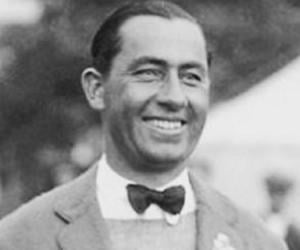
A major figure in the early-20th century international golf, American golfer Walter Hagen is often hailed as the father of professional golf for his contributions towards raising the stature of the game. The first golfer to earn one million dollars, he registered 58 wins including eleven major championships and made golf popular in the USA, with his flair and style.
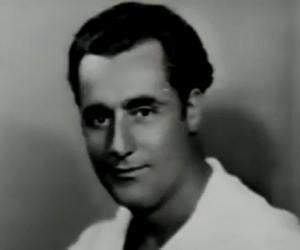
Italian-American bodybuilder Charles Atlas was known for co-creating a popular mail-order bodybuilding course. Beaten up and bullied as a skinny kid, he later used the Dynamic-Tension method to build his muscles. He then participated in vaudeville and later won titles such as the World’s Most Handsome Man.
Manuel Roxas was a Filipino politician who served as the president of the Philippines from 1946 to 1948. He also served as the first president of the Third Philippine Republic after the USA relinquished its supremacy over the Philippines. Regarded as an important politician in the history of the Philippines, Roxas is depicted on the 100 Peso banknote.
Walter Benjamin was a German Jewish essayist, philosopher, and cultural critic. An eclectic thinker, Benjamin made significant contributions to literary criticism, aesthetic theory, and historical materialism. Although Benjamin's work did not earn much recognition during his lifetime, it continues to be revered by academics several years after his death.
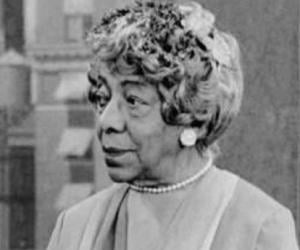
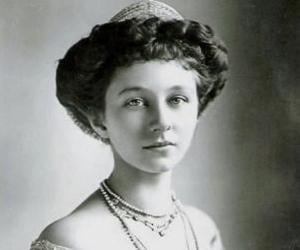
The only daughter of German emperor Wilhelm II, Princess Viktoria Luise of Prussia became II Guard Hussar Regiment’s colonel-in-chief. She later became the Duchess consort of Brunswick by her marriage to Ernest Augustus, Duke of Brunswick. Her memoirs were collated and published as The Kaiser’s Daughter.
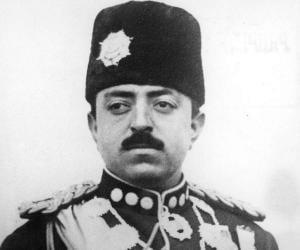
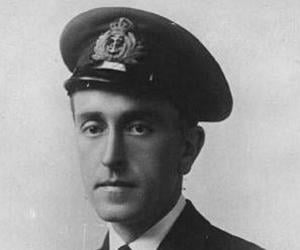
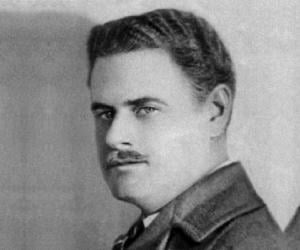
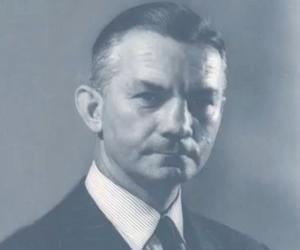
James Forrestal was an American financier who served as the first US Secretary of Defense from 1947 to 1949. He is also remembered for his service as the US Secretary of the Navy from 1944 to 1947. James Forrestal was honored with the Medal of Merit and the Distinguished Service Medal by President Harry S. Truman.
Alexander Alekhine was a French and Russian chess player renowned for his imaginative and fierce attacking style. He also possessed great positional and endgame skill, which he used effectively to reign as the World Chess Champion from 1927 to 1935 and then from 1937 to 1946. Also a theoretician, Alexander Alekhine innovated several opening variations, including the Alekhine's Defence.
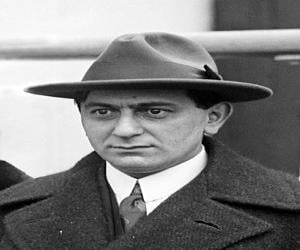
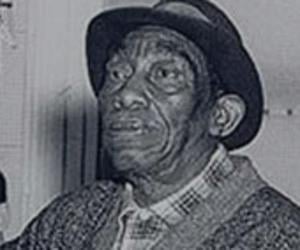
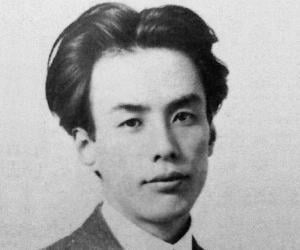
Ryunosuke Akutagawa was a Japanese writer best remembered for writing more than 150 short stories including In a Grove which inspired the 1950 film Rashōmon. Considered the father of the Japanese short story, Ryunosuke Akutagawa's brief career helped inspire his friend Kan Kikuchi to create Akutagawa Prize, a literary award for new writers, which is named in his honor.
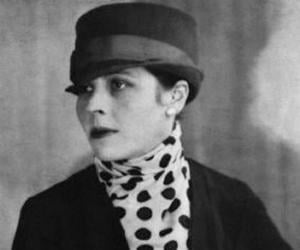
Arthur Seyss-Inquart was an Austrian politician who was part of the Austro-Hungarian Army during World War I. A Nazi propagandist, Seyss-Inquart was convicted of crimes against humanity and war crimes at the Nuremberg trials and sentenced to death. He was executed on 16 October 1946 in Nuremberg Prison.
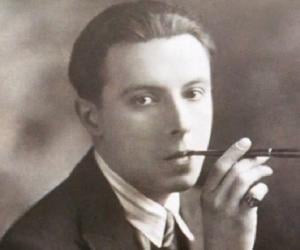
Russian-French designer and artist Romain de Tirtoff, better known as Erté, not just designed clothes but also created sets, costumes, and posters for opera and ballet performances. He had worked for Harper’s Bazaar and the Folies-Bergère, and had also penned quite a few books on design and illustration.
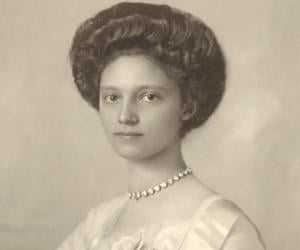
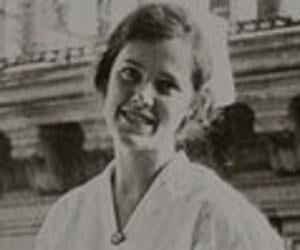
Agnes von Kurowsky was an American nurse who served during the First World War in an American National Red Cross hospital in Milan. She is credited with inspiring Ernest Hemingway's character Catherine Barkley in his 1929 novel A Farewell to Arms. Agnes von Kurowsky and Ernest Hemingway's love story was portrayed in the 1996 movie In Love and War.
American physicist Arthur Compton is best-known for introducing Compton wavelength, discovering Compton scattering, first identifying the Compton–Getting effect in the intensity of cosmic rays along with Ivan A. Getting, and for the Compton generator. He received the Nobel Prize in Physics in 1927 for discovering Compton effect. He also remained a prominent figure during the Manhattan Project.
Ivo Andric was a Yugoslav short story writer, poet, and novelist. Andric won the 1961 Nobel Prize in Literature after the Nobel Committee chose him over writers like Robert Frost, E. M. Forster, John Steinbeck, and J. R. R. Tolkien. After receiving the award, Andric's works were translated into several languages as they found an international audience.
Francisco Franco overthrew the Second Spanish Republic by leading the Nationalist forces as their general during the Spanish Civil War. Subsequently, Franco ruled over Spain as a dictator from 1939 to 1975. He had such an impact as a dictator that the period between the Nationalist victory and Franco's death is known as Francoist Spain in the history of Spain.
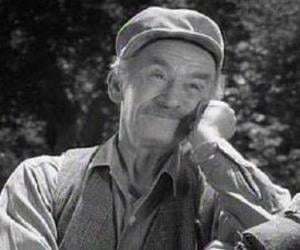
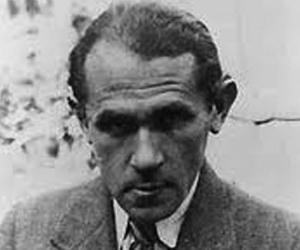
One of the best Polish authors of the 20th century, Bruno Schulz is remembered for his iconic works such as The Cinnamon Shops, a collection of short stories that had a Kafkaesque style. He was shot dead by a Nazi officer while returning home with a loaf of bread.
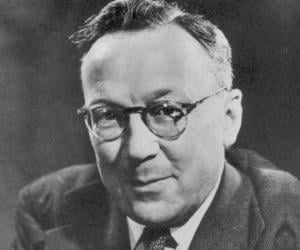
Robert Watson-Watt, often called the father of radar was a British physicist who did pioneering work in radio direction finding (RDF) and radar technology. He developed high-frequency direction finding (huff-duff) as a system for locating lightning. It was later introduced during the Second World War and played an instrumental role in intelligence, mainly in catching enemy radios while they transmitted.
V. Gordon Childe was an Australian archaeologist best remembered for his contribution to the study of European prehistory. One of the earliest supporters of culture-historical archaeology, Childe went on to become the first proponent of Marxist archaeology. He is regarded as one of the best-known and most revered archaeologists of the 20th century.
